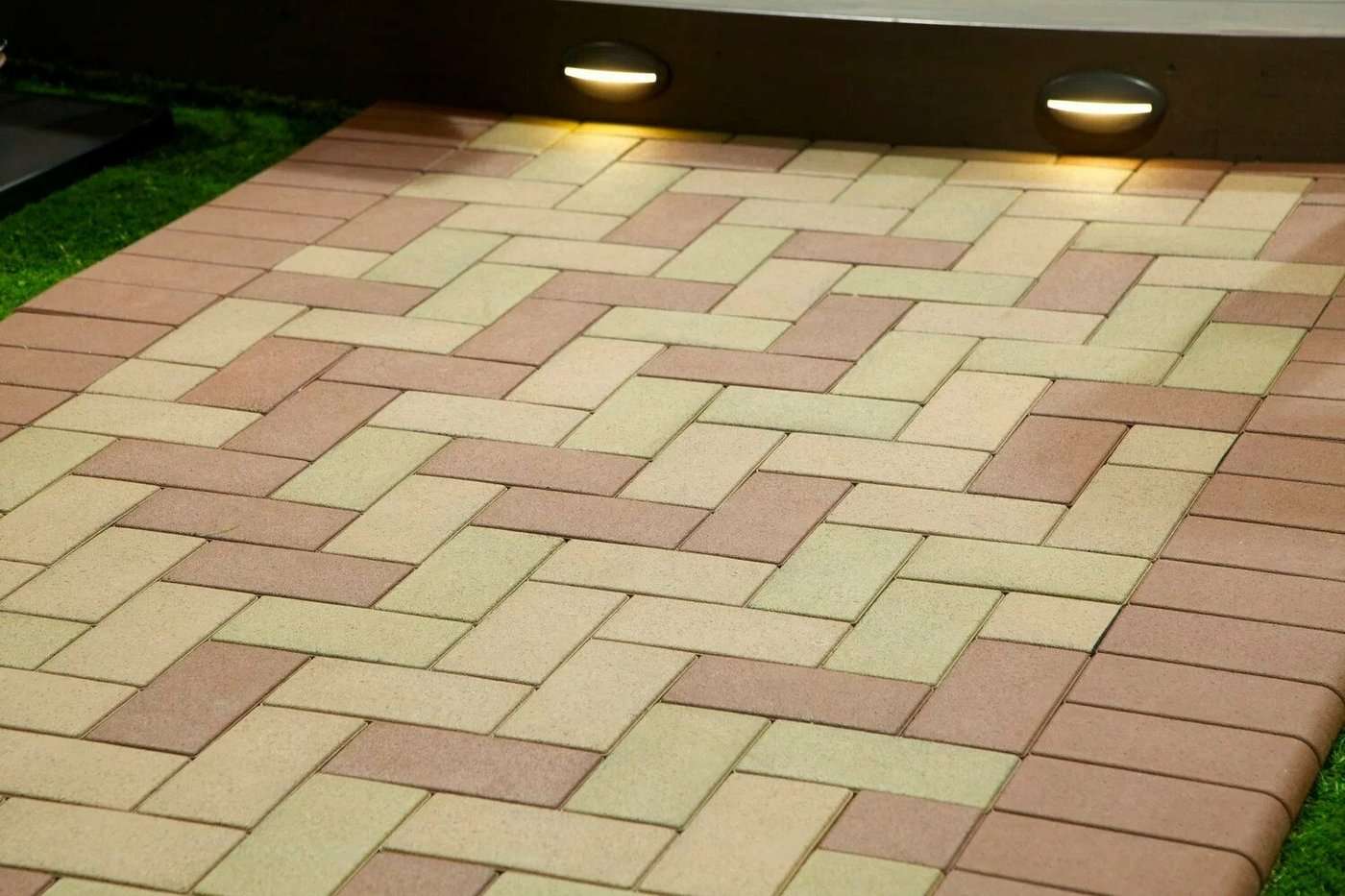Concrete is one of the most commonly used materials for driveways. In good condition, a concrete driveway is a smooth surface that allows for easy driving to and from the garage or house, as well as a level surface where the people who live there can play and work. Concrete driveways can be stamped to mimic the appearance of stone or brick and stained to take on different colors beyond the signature concrete gray.

On average, concrete driveways can last between 25 and 50 years if properly maintained. Concrete driveway maintenance includes sealing the concrete periodically, typically every two years, and removing stains as quickly as possible. Avoiding chemical deicers and using salt to melt ice sparingly, as well as using care when plowing or shoveling the driveway can also extend it’s life and keep it looking nice.
Concrete is a popular material, but there are alternatives that may be a better fit for your driveway. Here are six alternatives to a concrete driveway to consider when it’s time to upgrade your driveway:
1. Asphalt
Asphalt is the second most used concrete driveway alternative, and concrete and asphalt combined are said to make up about 90 percent of driveways in the U.S. Asphalt is typically half the price of concrete to install and with proper maintenance that includes patching cracks and resealing every three to five years, it can last between 15 and 30 years.
2. Gravel
Gravel is one of the most affordable alternatives to concrete driveways. It is also easier to install and maintain, but may require that more gravel is added and smoothed over time. An advantage that it has as a concrete alternative is that it won’t be affected by freeze/thaw cycles in areas that see frequent climate fluctuations. Gravel types include crushed stone, pea gravel, and marble chips, among others.
3. Brick
Brick driveways create a classic alternative to a concrete driveway and a stately and sophisticated appearance. This is a much more expensive option than other driveway alternatives and can also require substantial maintenance and upkeep over its life.
4. Cobblestone
One of the more expensive and labor intensive options, cobblestone driveways hearken back to a time when a horse and carriage was the transportation method of choice. The aesthetic appeal of cobblestone is one of its major draws and it can be installed in unique patterns to create a truly custom driveway. To maintain its beauty, however, significant maintenance is needed to keep weeds at bay and maintain as level of a surface as possible.
5. Natural Pavers
Driveway pavers are a wide ranging category for alternatives for driveways.
Natural paver materials can include sandstone, flagstone, or granite that can create a highly durable surface that, depending on the material and maintenance, can last up to 100 years. Natural pavers can be more expensive than other materials and require more installation time and it may be difficult to match replacement pavers after they have weathered.
6. Composite Pavers

Composite pavers are alternatives that are highly durable and weather resistant. Unlike other materials, composite pavers won’t crack, chip, or fade over time, and they are lightweight and easy to install.
Composite pavers are made from post-consumer recycled content that has been diverted from landfills and made into a beautiful and durable paver. Composite pavers come in a variety of colors that can be laid in a wide range of patterns to create a unique driveway.
The Best Alternative to Concrete Driveway: Aspire Pavers

Aspire Pavers are sustainable and durable pavers made with up to 95% post-consumer recycled rubber and plastics, and they are recyclable at the end of their life. Unlike other materials that require periodic resealing, Aspire Pavers don’t need to be sealed as they are already stain resistant.
Other benefits of Aspire Pavers include:
Lightweight
Our lightweight pavers are easy to transport to the installation location. Plus, because they are lightweight, they require less energy to transport, which further enhances their sustainability.
Easy to Install
Our installation grid lays on the prepared surface and allows the pavers to interlock. The installation process is quick and easy and requires no curing time, so you can use your driveway immediately after paver installation.
No Maintenance Required
Unlike concrete or asphalt driveways that require periodic resealing or gravel that may need to be smoothed, composite pavers don’t require any maintenance other than basic cleaning and debris removal.
Stain and Fade Resistant
Other materials tend to stain or fade over time, but Aspire Pavers are stain and fade resistant. This means you won’t have to worry about what activities take place on the driveway, and if a paver does get damaged, which is unlikely, it can be replaced without standing out from the surrounding pavers.
Contact the experts at Aspire today to learn more about our in-ground driveway paver options.
